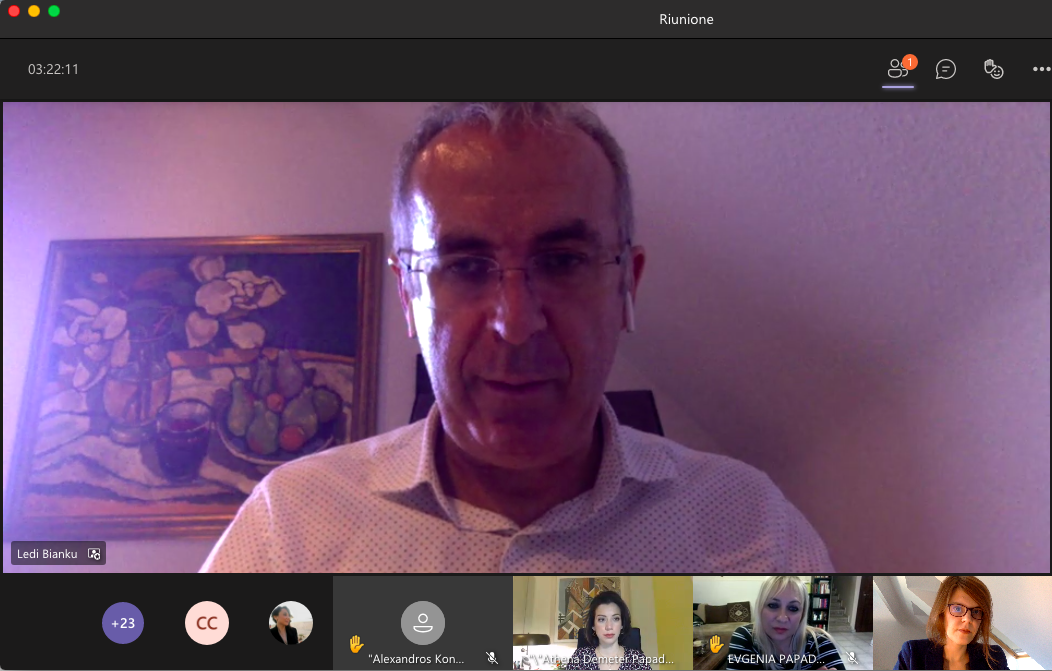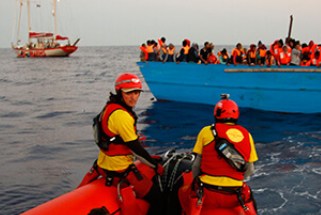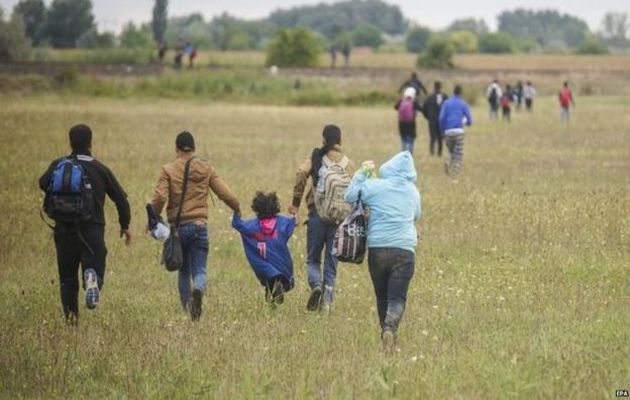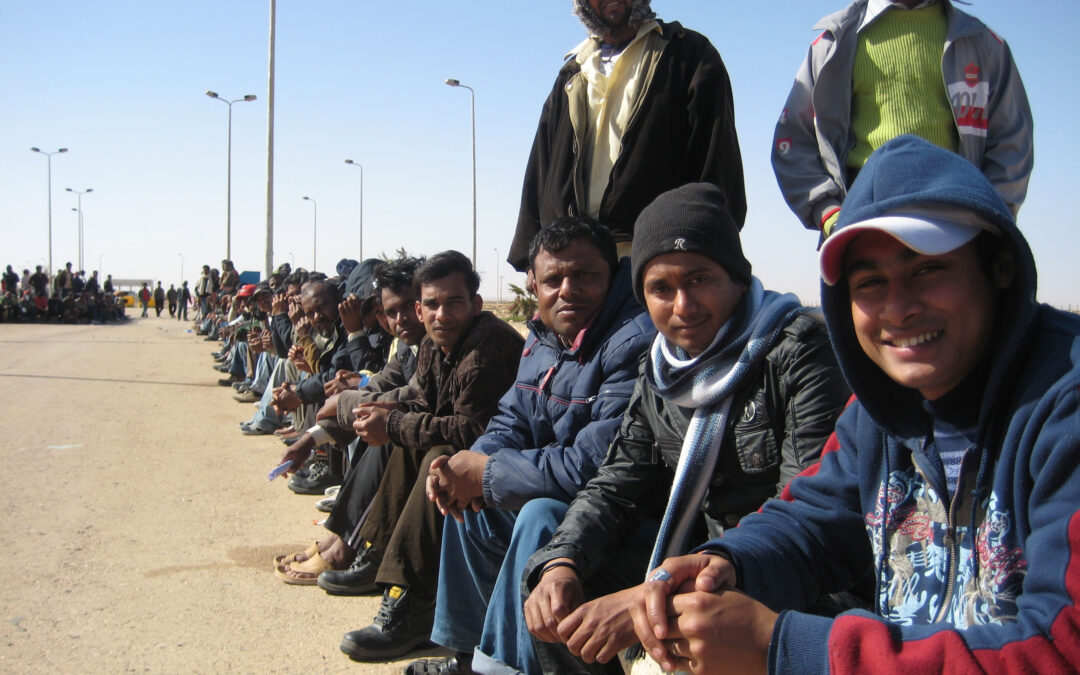
Apr 1, 2021 | Agendas, Events, News
Migrants and asylum seekers must be provided adequate procedural guarantees in asylum procedures and in immigration detention, a group of experts and judges asserted during a seminar for Greek and Italian judges held by the ICJ, Scuola Superiore Sant’Anna (SSSA), and Greek Council for Refugees (GCR) on 29-31 March.
Asylum applicants should have access to adequate information about the procedure and their entitlements in a language they understand, access to a reliable communication system with the authorities, the availability of interpreters, access to legal aid, and reasoned decisions, experts said during the seminar, held in the framework of the FAIR plus project. Speakers further emphasized that immigration detention must be subject to automatic review by an independent body with a power to release detainees, especially when removal is no more an option.
More than 30 judges from Italy and Greece came together for this event to discuss procedural guarantees for migrants and asylum seekers, related to the safe third country concept, the access to legal assistance and interpretation, safeguards related to immigration detention, and procedural guarantees in the asylum procedure, especially in the accelerated procedures.
A summary of the discussions
On the first day, the judges exchanged overviews of national systems and presented some specific questions regarding the Italian and the Greek systems. Following the discussion on the safe third country concept and its implementation in Greece, an Italian judge presented recent developments in the Italian case-law, and the role of the judge, country of origin information, accelerated procedures, the length of procedures and the question of credibility assessment.
On the second day, the discussion related to the impact of Covid-19 pandemic on the rights of migrants and asylum seekers took place. The situation in Greece and in Italy was described by judges, in particular in relation to the access to the asylum procedure, the lawfulness of detention, the right to health and the question of access to a personal hearing when some of the hearings take place electronically.
An overview of the situation of immigration detention in Italy and Greece was presented by an Italian lawyer and an expert from UNHCR Greece. Speakers highlighted that in cases when people cannot be returned, they should not be kept in detention without a legal basis.
Accelerated procedures in law and in practice in both countries have been introduced by UNHCR Greece and Italy were addressed through a case-study and discussion, covering mainly the specific needs in accelerated procedures, automatic suspensive effect of appeals, and time limits in the accelerated procedures.
Finally on the last day, two lectures were delivered by Ledi Bianku, a former judge of the European Court for Human Rights, and an Associate Professor at the University of Strasbourg. First, looking into the guarantees in asylum and migration proceedings, Ledi Bianku stressed the need to always provide asylum applicants adequate information about the procedure and their entitlements in a language they understand, access to a reliable communication system with the authorities, the availability of interpreters, access to legal aid, and reasoned decisions in order to provide access to an effective remedy. In the second part of his intervention, Mr. Bianku discussed the detention of migrants, where he stressed the need for automatic review of detention, especially when removal is no more an option, by an independent body with a power to release.
The FAIR plus project is a judicial training and cooperation project supported by the European Union’s Justice programme, focusing on four countries Ireland, Greece, Italy and the Czech Republic. The aim of the project is to contribute to better judicial protection of the fundamental rights of migrants across the EU. Within the project the ICJ and partners are drafting of training materials and relevant legal briefings, implement training of the existing judicial trainers in the target countries, conduct four national trainings, two transnational seminars, and an international roundtable. The project is implemented in collaboration with national partners: Immigrant Council of Ireland (ICI), Scuola Superiore Sant’Anna (SSSA), Greek Council for Refugees (GCR) and Forum for Human Rights (Czech Republic).
Please find the agenda here.

Mar 29, 2021 | Agendas, Events, News
Judges play a crucial role in protecting the rights of migrants and asylum seekers, and refugees , experts emphasized at a conference for judges in the Czech Republic held by the International Commission of Jurists (ICJ), Forum for Human Rights and Czech judicial academy on 22-23 March 2021.
The right of asylum seekers to an effective remedy is guaranteed in international and EU law, and it requires a full and ex nunc examination of both facts and points of law. Conference participants discussed how specific vulnerabilities of people in asylum proceedings must be identified as early as possible and the important role that judges play in ensuring that this is the case.
Speakers emphasized that the “best interest of the child” principle, and the right to private and family life, have to be taken into consideration when termination of residence of migrants is in question.
The training, “Selected discourses of asylum and migration law from the international and national perspective” addressed relevant topical questions on the protection of human rights in asylum proceedings in the Czech Republic. Participants included international experts and about 100 participants from among Czech judges and judicial assistants. The speakers included highly experienced European judges, and Czech legal experts and judges. The event was co-organised with Forum for Human Rights, a Czech and Slovak nongovernmental organization, and the Judicial academy of the Czech Republic.
Background
The event took place as part of the FAIR PLUS project. You can find the agenda of the national training here and more details on the issues covered by the training here.
Watch on YouTube: FAIR PLUS Project: Selected discourses of asylum and migration law form the international and national perspectives.

Aug 8, 2019 | News
The ICJ called today on Italy and Malta to cooperate to swiftly provide a place of safety for the disembarkment of the 121 migrants, likely including asylum seekers, on board the Open Arms vessel.
Open Arms rescued 123 people that left Libya and were on a situation of distress in international waters, and has been navigating seven days on the Central Mediterranean Sea in search of a place of safety for disembarkment.
Currently Italy and Malta (the nearest States) and Spain (the flag State) have not granted access to their territorial waters.
“When a boat is conducting an operation of rescue it is the duty under international law for neighbouring States to provide a place of safety,” said Massimo Frigo, ICJ Senior Legal Adviser.
“The situation on the boat, with also 30 children and two babies, is rapidly deteriorating and it is of the utmost urgency to allow for their disembarkment,” he added.
“The refusals and lack of cooperation by Italy, Malta and Spain is in contravention of their obligations under the law of the sea,” said Frigo.
“These States should open their harbours and the EU should work hard to ensure that resettlement is ensured so as to relieve pressure from them.”
Relevant provisions of international law include: UN Convention on the Law of the Sea (Article 98); International Convention for the Safety of Life at Sea (SOLAS), Annex, Chapter V; International Convention on Maritime Search and Rescue.
Contact:
Massimo Frigo, ICJ Senior Legal Adviser, t:+41 22 979 3805 ; e: massimo.frigo(a)icj.org

Nov 29, 2016 | Advocacy, News, Non-legal submissions
The ICJ and 77 other civil society organizations and UN agencies called today on the EU institutions and Member States to do more to protect the rights of refugee and migrant children.
The call came in a statement released to mark the opening of the 10th European Forum on the Rights of the Child in Brussels.
The refugee and migrant crisis in Europe will soon enter its third year, with children playing an ever larger part and the impact on their lives all the more tragic.
Between January and September 2016, more than 664,500 children claimed asylum in Europe; nine in ten children arriving in Italy this year were unaccompanied; 23,000 children in Greece remain in limbo – their futures hanging in the balance, their education on hold.
More than 700 children are estimated to have died at sea trying to reach Europe this year alone. Last week a six-year old child died in a fire in the Moria camp on the Greek island of Lesbos.
The ICJ is deeply concerned at the failure to prioritize the protection of children’s rights. Children lack access to basic procedural rights, such as access to a guardian, access to a lawyer or access to information.
Children stranded in Greece have been out of school for an average of 20 months.
Many children have to wait for more than a year to reach family members in other EU Member States or even more when their parents or siblings are outside of the EU. In many cases they cannot reunite with their parents or siblings because it is simply too expensive for them.
The EU and Member States can do a lot more to protect children’s rights and address their particular needs and vulnerabilities.
78 partner organizations identify seven priority actions to protect refugee and migrant children today and prepare them for the future.
These actions include the urgent adoption of an EU Action Plan on children in migration, strengthened safeguards in the asylum legislation, increased funding for national child protection systems and building mechanisms to protect children across borders.
The reform of the common European asylum system, currently debated in the European Parliament, provides a unique opportunity to ensure children get access to guardians, education and family reunification.
EU action is also needed to end the detention of migrant and refugee children, and the identification of alternatives.
The full statement can be downloaded here:
eu-joint-statement-refugee-and-migrant-children-advocacy-non-legal-submission-2016-eng
Information about the November 2016 ICJ Geneva Forum on the role of judges and lawyers in relation to large movements of refugees and migrants (including special consideration of migrant and refugee children), is available by clicking here.

Mar 21, 2016 | News
The ICJ today expresses serious concern that the deal concluded on Friday 18 March between the European Union and Turkey on the return of migrants and refugees to Turkey is likely to lead to serious violations of international and EU human rights and refugee law.
“This initiative carries high risks of infringing the right of asylum and the prohibition of non-refoulement, as well as the right to an effective remedy for potential violations of these rights”, said Róisín Pillay, Director of the ICJ Europe Programme.
All EU Member States, including Greece, have obligations to protect these rights under international human rights law, and Member States and EU institutions have similar obligations under the EU Charter of Fundamental Rights.
The agreement seeks to establish swift return from Greece to Turkey of any migrant or asylum seeker attempting to reach Greece who does not apply for international protection there or whose application is deemed unfounded or inadmissible.
In order to facilitate such returns, Turkey may be declared to be a “safe third country” which could allow for the dismissal of asylum requests in Greece based on this element alone, and the rapid return of applicants.
The EU and Turkey, in their joint statement, contend that these operations will not be carried out in violation of international and EU law, including the prohibition of collective expulsions and the principle of non-refoulement, which prohibits return to a country where the returned person faces a real risk of torture or other serious violation of human rights.
It is nevertheless unclear how the system proposed could lead to swift returns, while respecting international human rights and refugee law, the EU Charter of Fundamental Rights and the EU Asylum Procedure Directive, for a number of reasons.
First, the ICJ stresses that Turkey cannot be considered a “safe third country” for the return of migrants and refugees.
Authoritative reports and international jurisprudence on Turkey demonstrate that neither the general human rights situation in Turkey, nor its asylum procedure and reception system are in line with international law, including Turkey’s obligations under the European Convention on Human Rights’ prohibition of inhuman and degrading treatment in article 3 ECHR.
Second, the ICJ affirms that the commitment of Turkey to adapt its asylum system to comply with international law and standards does not in itself allow for returns from EU countries in compliance with the principle of non-refoulement.
International and EU law binding on Greece and other EU Members States requires an assessment of the situation in the country of return at the moment the return is effected to determine whether there is a real risk of violations of human rights.
Therefore, at present, and irrespective of the commitments made on reform, any return to Turkey would be at high risk of infringing the principle of non-refoulement and the returning country’s legal obligations.
Crucially for the prospects of the new system, it is also clear that the Greek asylum system is not in a position to proceed to a swift consideration of asylum applications in compliance with human rights, including procedural guarantees.
“As is clear from ongoing Council of Europe discussions about implementation of European Court decisions against Greece, the Greek asylum procedure cannot yet provide for an effective remedy for cases of arbitrary refoulement. Without respect for such guarantees, many migrants will be left vulnerable,” said Massimo Frigo, Legal adviser at the ICJ.
The ICJ emphasises that, whatever co-operative arrangements are put in place, Greece and Turkey will have responsibility under international human rights and EU law as regards the rights of persons subject either to Greek or Turkish territorial jurisdiction or to Greek or Turkish authority and/or control.
Furthermore, through its direct involvement in and financing of these arrangements, the EU itself may be complicit in any breach of the right of asylum, the prohibition of collective expulsions, the prohibition of non-refoulement or the right to an effective remedy.
The ICJ is further concerned at the “one for one” resettlement mechanism that will be established to settle one Syrian refugee in a EU country for every Syrian returned to Turkey.
It is of serious concern that this mechanism contemplates the return of Syrians to Turkey. Syrians are prima facie entitled to international protection and would likely fall within one of the grounds of international protection of the EU Qualification Directive.
It would therefore be unlawful under EU law to return them to Turkey.
Full text and additional information on the content of the deal available here.
Contact
Róisín Pillay, Director, Europe Programme, roisin.pillay(a)icj.org
Massimo Frigo, Legal adviser, Europe Programme, massimo.frigo(a)icj.org









